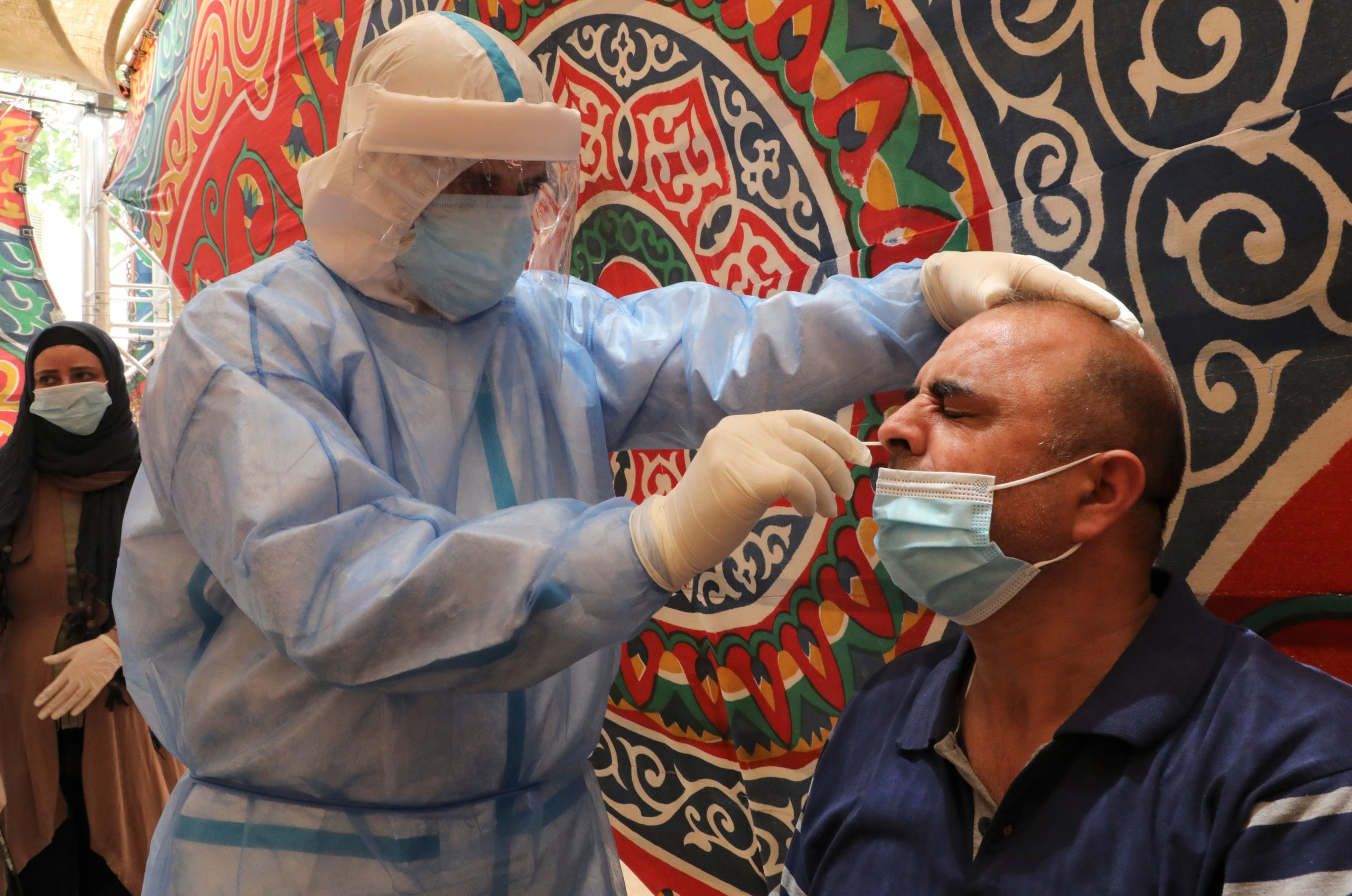Palestinian Corona Patients’ Privacy to Be Safeguarded
PA Ministry Health will publish COVID-19 test results by ID number, not name
A webpage will soon be launched enabling Palestinian citizens to obtain the results of their coronavirus tests based on their identification numbers alone, Osama al-Najjar, the director-general of supportive medical services at the Palestinian Authority Health Ministry, announced on Sunday.
This move comes to preserve the privacy of patients, and to put an end to the practice by some social media outlets and websites of publishing the names of supposed patients, and of those who were allegedly in contact with them.
The ministry stressed that names and personal information would be available only to the competent authorities in the preventive medical committees.
“The leaking of patients’ names outraged citizens, as it violated their privacy. Some people don’t like others to know about their illness,” Najjar told The Media Line.
He explained that some Palestinians who had been in contact with infected people were avoiding being tested, for fear that their results would be publicized. “They are afraid of scandals.”
Some pages on social networking sites have repeatedly published the names of those infected with the virus, bypassing official sources and sparking widespread controversy on the Palestinian street as citizens objected to the invasion of privacy.
The webpage would also make it easier for people to obtain their results, instead of waiting for the ministry to call them, Najjar explained. At the same time; it will make it easier for ministry staff to deal with the huge volume of data and phone calls.
“We perform about 5,000 tests a day, and now we’re adding two more testing labs, and so we will soon be conducting about 10,000 tests a day,” he added.

A doctor from the Palestinian Health Ministry takes a nasal swab sample from a person suspected of being infected with the novel coronavirus in Hebron in the West Bank, July 15, 2020. (Hazem Bader/AFP via Getty Images)
The webpage will also facilitate the monitoring processes, allowing decision-makers to track the numbers of infections and their geographical distribution, “so that we can determine the foci of the virus’s spread and patients’ contacts, and assess the epidemiological situation in the West Bank accordingly.
“For those who don’t use the internet or know how to visit the page, such as the elderly, the [preventive medical] committees will contact them directly,” Najjar said.
Rita Asfour, a Ramallah-based social media influencer who recently came down with COVID-19, told The Media Line that she went to be tested for the coronavirus last week, after learning that friends were infected. She heard about her results from several people before the Health Ministry contacted her.
“I learned about my results an hour after I took the test, from [random] people,” she said.

Ramallah-based social media influencer Rita Asfour. (Instagram)
Compromising people’s privacy by leaking their results was a big deal, Asfour said.
“When a person is tested for the coronavirus, they should be able to deal with the virus and their situation without worrying about what people might say,” she said.
There was widespread ignorance about the pandemic, Asfour said, especially regarding how the virus was transferred, how dangerous it was, and even whether it actually existed.
“People always focus on the negative and refuse to believe the facts regarding things that make them uncomfortable,” she added.
When a person is tested for the coronavirus, they should be able to deal with the virus and their situation without worrying about what people might say
Asfour pointed out that gossip and storytelling could be very disturbing, whether or not someone was infected with the coronavirus.
“When you decide to take the COVID-19 test, you’re already under huge stress, and the leaking of names, which most of the time are wrong anyway, becomes extremely annoying, especially given what people start saying and how they view you as a coronavirus patient,” she said.
Uninformed descriptions of how particular people contracted and transmitted the virus only served to raise the stress on those who are being tested, she said. “It’s extremely uncomfortable for the patients and for anyone taking the test.”
Asfour applauded the ministry’s new webpage, saying it would be a trusted source for information and, at the same time, protect the privacy of citizens.
“The ministry’s new page is great; it will make it easier for the ministry staff and us citizens to review results, and most important, it will leave no space for leaking incorrect information,” she said.


